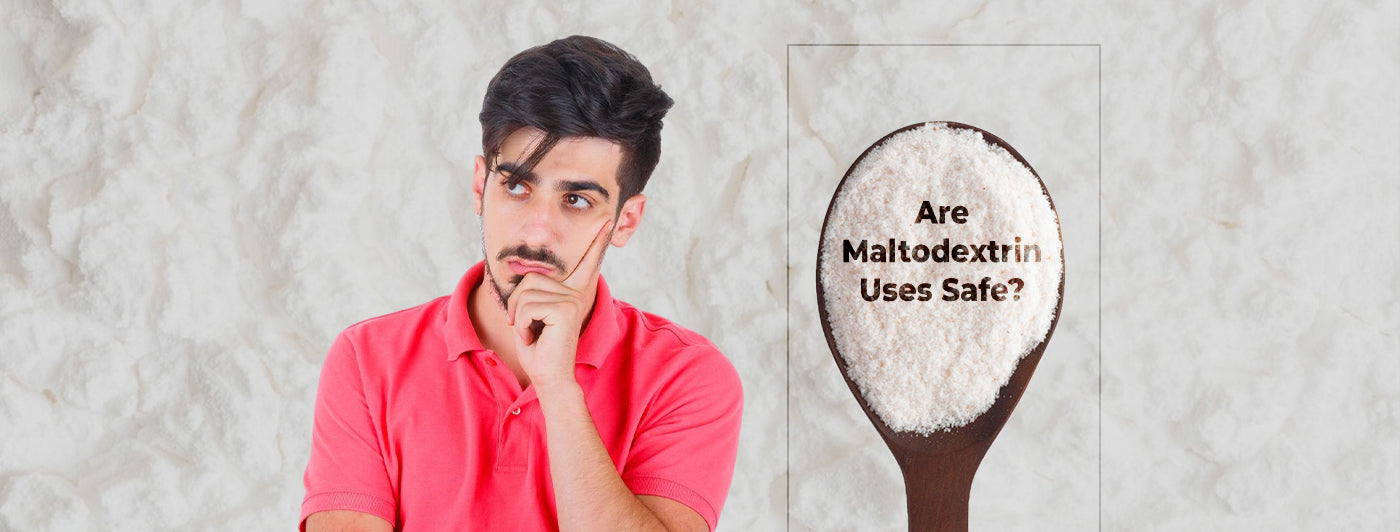Maltodextrin, a processed carbohydrate additive, has become a staple in many processed foods and supplements. While it serves a purpose in making products cheaper, longer-lasting, and sweeter, these maltodextrin uses carry significant health risks. In this article, we delve into maltodextrin uses and the scientifically documented dangers that come with its consumption, revealing why this additive may not belong in a health-conscious diet.
What is Maltodextrin?
Maltodextrin is a highly processed white powder derived from corn, rice, potato starch, or wheat. It undergoes extensive refinement to strip away most nutritional value, transforming starchy foods into a refined carbohydrate powder. Despite its natural origins, the end product is far from natural and can negatively affect blood sugar, digestion, and overall health.
Maltodextrin Uses in the Food Industry
One of the primary maltodextrin uses is as a food additive due to its ability to act as a thickener, filler, and preservative. However, these benefits to manufacturers often come at the consumer's expense. Here’s why maltodextrin uses are concerning:
- Empty Caloric Additive: Maltodextrin adds calories without any nutritional value, contributing to weight gain and metabolic issues.
- Artificial Sweetener and Thickener: Often used in “low-sugar” products, maltodextrin can create the illusion of a healthier food choice when, in reality, it spikes blood sugar levels.
- Prolonged Shelf Life: The preservative qualities of maltodextrin allow processed foods to stay on shelves for longer, encouraging consumption of items that are highly processed and nutritionally void.
Why Maltodextrin Uses Pose Health Risks
Despite its prevalence in food products, maltodextrin has a range of serious health implications. Below are some of the top reasons to avoid products containing maltodextrin.

1. Blood Sugar Spikes and Insulin Resistance
Maltodextrin is a high-glycemic carbohydrate, meaning it rapidly raises blood sugar levels upon consumption.
Unlike complex carbohydrates that provide slow, sustained energy, maltodextrin delivers an immediate spike. This impact is particularly harmful for people with diabetes or pre-diabetes, but even for healthy individuals, it can promote insulin resistance over time, paving the way for metabolic disorders.
2. Disturbance of Gut Health
Emerging research shows that maltodextrin uses can be damaging to the gut microbiome. Studies indicate that maltodextrin can promote the growth of harmful bacteria, including strains like E.coli, while inhibiting beneficial bacteria that support digestion and immunity. A disturbed gut microbiome has been linked to inflammatory bowel disease (IBD), digestive disorders, and an increased susceptibility to infections.
3. Weight Gain and Obesity
With its high glycemic index and empty calorie content, maltodextrin can significantly contribute to weight gain and obesity, particularly when consumed frequently. Its inclusion in “diet” foods, snacks, and sodas often results in hidden calories that make it easier for individuals to consume more than they realize. Over time, the extra calories from maltodextrin, coupled with its rapid sugar absorption, can promote fat storage and unwanted weight gain.
4. Potential Allergic Reactions
For individuals with specific food allergies, maltodextrin can trigger reactions, particularly if it’s derived from wheat or corn. Symptoms of maltodextrin-related allergic reactions may include bloating, gas, rashes, or, in severe cases, anaphylaxis. Gluten-sensitive individuals and those with celiac disease should be especially cautious, as some maltodextrin products may contain trace amounts of gluten, even if they’re not labeled accordingly.
Why Rethink Supplements with Maltodextrin?
In the health and fitness industry, maltodextrin uses are rampant, especially in supplements marketed toward athletes and bodybuilders. Its fast-absorbing nature makes it a common ingredient in mass gainers and energy drinks. However, rather than replenishing the body with nutrient-dense fuel, these supplements often end up flooding the body with simple sugars, leading to the risks highlighted above.
Instead, some individuals choose vegan protein powder for muscle gain as a plant-based alternative that avoids many of the additives found in products containing maltodextrin. This option can be more suitable for those with dietary restrictions or a preference for minimally processed ingredients, supporting muscle recovery in a more natural way.
Identifying Maltodextrin in Foods
Since maltodextrin uses are widespread in processed foods, it’s essential to identify it on ingredient labels. Here’s how:
- Check Ingredient Lists: Maltodextrin often appears in packaged foods, low-sugar snacks, and even “healthy” diet items. It’s particularly common in products labeled as low-fat or sugar-free, where it’s used to replace the flavor lost from reduced sugar or fat.
- Avoid Hidden Sugars: Be wary of foods that don’t list added sugars but contain maltodextrin. It’s a carbohydrate with a similar glycemic effect as glucose, so it can still spike blood sugar levels.
Choosing minimally processed foods with simple ingredients is a safer approach to avoid the potential health risks associated with maltodextrin.
Conclusion
Understanding the risks tied to maltodextrin uses is crucial for making healthier food choices. Although maltodextrin has its place in the food industry as a cheap additive, its health downsides—from blood sugar spikes to gut disruption—far outweigh any benefits it may offer in food products or supplements.
For those seeking a healthier lifestyle, limiting maltodextrin intake and prioritizing whole foods and natural protein powder options can lead to better health outcomes.
By carefully reading labels and opting for natural sources of nutrients, consumers can take control of their diets and reduce the hidden risks associated with maltodextrin.











